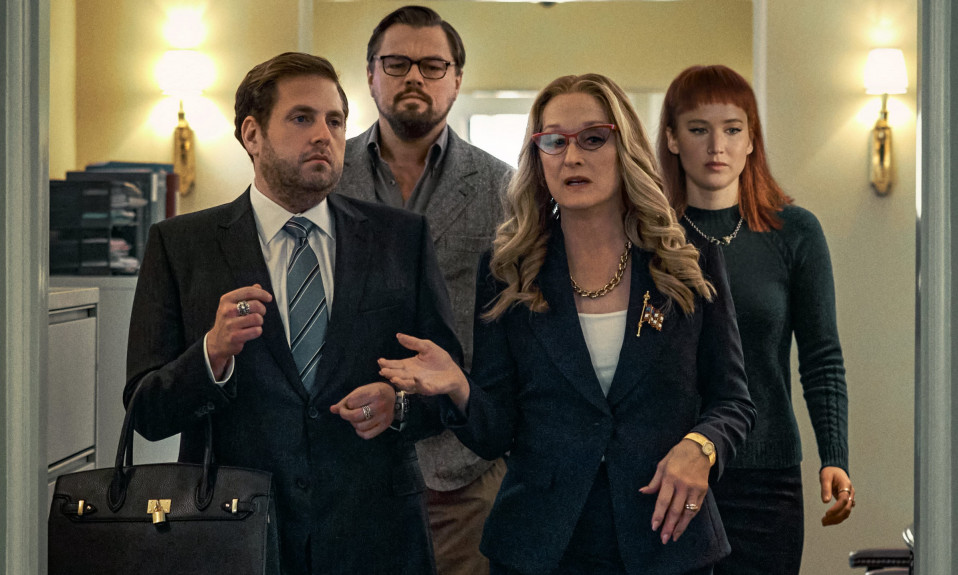Stephen Spielberg caused controversy recently with his comments about streaming platform Netflix – the legendary director appeared to roundly condemn those who want to include films made directly for the media service provider in the list of Academy Award nominees, referring to their eligibility for the accolades as “token qualifications”.
Steven Spielberg caused controversy recently with his comments about streaming platform Netflix – the legendary director appeared to roundly condemn those who want to include films made directly for the media service provider in the list of Academy Award nominees, referring to their eligibility for the accolades as “token qualifications”.
And here we, as film enthusiasts, find ourselves trapped between a rock and a hard place: the rock being arguably the most famous movie director of all time, and the place being the Western culture of 2019, where content is consumed in a vastly different manner than it was when Spielberg first began his directorial career.

Is this the opening skirmish of a war between the past and present? Are we supposed to pick a side?
Probably not.
When Alfonso Cuarón’s Roma won three Oscars at the Academy Awards (including, most significantly, Best Director) last month, it broke a taboo that perhaps none of us realised even existed. Roma was put forward for ten awards by the Academy, and though it wasn’t the first streamed film to be nominated (that honour goes to Manchester By The Sea), it was the first to ever win in the Best Director category. That’s a major distinction.
And yet, Roma ruffled more than just Spielberg’s feathers. One of the reasons why the film was considered so contentious by those in the movie industry, in fact, was the way in which it was released. Netflix made the film available mid-December, around the time most Oscar-hopefuls will start distributing their work, and also released it in a few movie theatres at the same time, which was frowned-upon by some because it failed to stick by the 90-day cinema window.
In the run-up to the Oscars, Tom Rogers (former CEO of TiVo) explained why Roma could be a milestone in the history of cinema.
“It’s such a disruptive pick for the Academy to end up embracing something that’s really going to go to the heart of movie theatrical distribution and the whole windowing system it has,” he said. “Netflix came up with a better way to watch television. Consumers have voted. It’s a great way to get what you what, when you want, and how you want it. And they’re doing the same thing with movies.”
CNBC
So while Netflix is indeed breaking new ground, it isn’t necessarily doing anything wrong (in the eyes of most people, anyway).
However, Steven Spielberg wasn’t quite so accommodating, stating:
“I don’t believe films that are just given token qualifications in a couple of theatres for less than a week should qualify for the Academy Award nomination.”
The Guardian
He went on to suggest that Netflix movies should be nominated for Emmy Awards as they’re technically made for television. The veteran director is expected to raise the issue at the next Academy board of governors meeting and argue for a rule change that would ensure Oscar-nominated films adhere to the traditional theatrical run format in order to be eligible for the awards.
So what’s the bottom line here?
Well, it depends what way you look at it. Peter Bradshaw writes:
“Those sympathetic to Netflix contest their opponents’ claim to be the defenders of decent celluloid values battling against an overweening corporate monster intent on crushing the community values of movie theatres. On the contrary, they say Netflix is challenging the privileges of entitled white males.”
The Guardian
Bradshaw does, however, go on to point out that Netflix relies heavily on subscriptions and is simultaneously engulfed in massive, crippling debt – a staggering $28billion – that could quite easily cause the platform to collapse, “leaving us to wonder how we could have been so naive and disloyal in relation to the workable theatrical release model.”
And for those who might try arguing that the current generation is transitioning away from traditional models of cinema towards instant content, it should be noted that just last year, attendance at UK theatres was at its highest since 1970, with 177million admissions.
Perhaps Spielberg has a point, and the purity of the Academy Awards should be preserved at all costs. Or maybe we’re simply in a new era of cinema, one in which we can watch Oscar-worthy films on both our television and theatre screens, depending on our preference.
Surely increased access to quality works like Roma can only be a good thing, after all? Certainly, Spielberg’s contemporary Martin Scorsese seems to think so, with his next film The Irishman set to debut on Netflix later this year.













